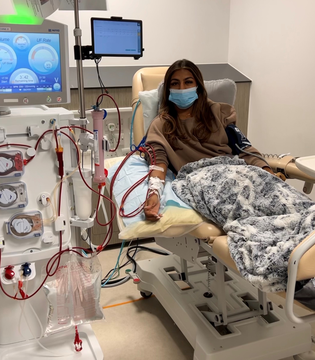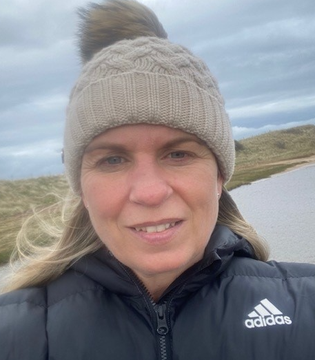A new pilot scheme launching this month will match blood transfusions intended for kidney transplant patients for white blood cells as well as red blood cells, reducing the risk of transplant rejection.
The announcement comes as the wait for kidney transplants is at a ten-year high, with 5,870 people in the UK on the waiting list at the end of March. If the pilot proves successful and a national matching programme is rolled out, it could cut the time people spend on the waiting list.
A specialist laboratory in Colindale, London, will match the blood and then supply it to selected pre- and post-transplant patients at Hammersmith Hospital in London, part of the Imperial College Healthcare NHS Trust.
Matching for white blood cell type – also known as tissue or HLA type – is not usually needed for most blood transfusions, as the creation of HLA (human leucocyte tissue antigen) antibodies by the immune system against unmatched white blood cells from transfused blood has no effect.
In transplant patients, however, the HLA antibodies may identify the transplanted kidney as ‘foreign’ and attack it, which can lead to transplant rejection. One in four people waiting for a transplant have a delay in finding a match because of their body’s antibody response, and some patients are never offered a suitable match.
Dr Colin Brown, NHSBT Consultant Clinical Scientist, Head of Histocompatibility and Immunogenetics at Colindale, said:
“This is an innovative pilot programme, and we hope to improve patient outcomes.
“Each year, around 1,000 kidney patients who are transplanted will also receive a transfusion. If all of them could benefit from a successful transfusion programme and a wider roll out, our models show 100 kidney transplants a year could be saved.”
Around two out of every five kidney transplant patients need blood transfusions before or after receiving a transplant, but these transfusions have been linked by NHS Blood and Transplant analysis to a doubled risk of transplant rejection because of the creation of HLA antibodies. By matching for white blood cell type, the NHS hopes to reduce this problem.
Dr Michelle Willicombe, Transplant Nephrology Lead at Imperial College Healthcare NHS Trust, said:
“There is no known effective treatment for HLA antibodies, which can be a barrier to successful transplantation. This important innovation will help prevent their development before and after transplantation, where a blood transfusion cannot be avoided. We hope it will make a meaningful difference to our patients.”
Fiona Loud, Policy Director at Kidney Care UK, said:
“Receiving a transplant and then maintaining one for as long as possible is so important for people with kidney failure. Waiting for a transplant is incredibly hard and those with greater antibody sensitisation can wait even longer. Organ rejection is a huge concern for people who have had a transplant, and this pilot will give them the hope of longevity.
“With the waiting list at a ten-year high and 80% of the people on the list waiting for a kidney, we need action to improve the outlook for people with kidney disease when it comes to transplantation in the UK.”
Alisha Gorkani (left) and Gemma Louis (right)
Alisha Gorkani, aged 25, from Sidcup in the London Borough of Bexley, a solutions advisor for a tech company, has juvenile nephronophthisis and has spent seven years waiting for a matching kidney transplant.
She has developed antibodies from a mix of blood transfusions and a past kidney transplant.
Alisha said: “I have a lot of antibodies so I could be waiting a very long time. I try to make the best of things but waiting for a kidney and being on dialysis is incredibly hard.
“It does give me hope that people like me could have better matched blood in the future. There are thousands of people hoping for a miracle match.”
Married mum of two boys Gemma Louis from Chester-le-Street has waited 11 years for a kidney transplant due to sensitisation from a blood transfusion.
The 44-year-old civil servant has chronic kidney disease and needs four hours of dialysis three days a week. “I told initially my wait would be twice as long as normal, so around six years. I am 11 years in now,” said Gemma.
“I knew I would a long wait purely because of the antibodies I developed to the transfusion. It’s harder to find a match which won’t be rejected. This programme sounds like it could potentially help people like me in the future. I know people at my unit who are even more sensitized.
“In general, there is still a need for more organ donors. I absolutely think people should join the Organ Donor Register. I think most people would be willing to accept so why wouldn’t you be willing to donate?”

